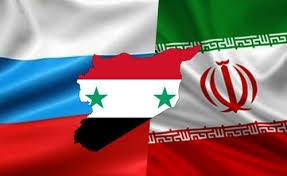 Tehran backs Russia’s efforts to host a new round of peace talks between Damascus and the Syrian opposition, Iran’s deputy foreign minister said on Wednesday during a visit to Moscow.
Tehran backs Russia’s efforts to host a new round of peace talks between Damascus and the Syrian opposition, Iran’s deputy foreign minister said on Wednesday during a visit to Moscow.
Russia and Iran have sided with President Bashar al-Assad in the conflict in Syria, where three years of fighting has killed some 200,000 people, while the West backs some of the rebel groups seeking to oust him.
Russia, increasingly isolated over another conflict in Ukraine, has stepped up efforts to restart peace talks on Syria and hopes a meeting between the rival sides could be held in Moscow as soon as in January.
“We support Moscow’s idea of holding a meeting between representatives of the (Syrian) authorities and Syria’s moderate opposition,” Hossein Amir-Abdollahian was quoted as saying on Wednesday by the Russian news agency TASS.
Russia has not specified which opposition groups it thinks should be represented, one of key issues of contention in the past. Though Abdollahian said Iran would not be part of any such talks, he shed more light on the allies’ thinking.
“Only representatives of the opposition that believes in political settlement and which is not armed should be invited. These representatives should have some sort of a base within the Syrian nation,” Abdollahian said, echoing the official Syrian position.
He said that “a large part of the militants and adversaries (of the Syrian regime) that now exist in Syria are terrorists.”
Russia has also said the most pressing threat in the Middle East is that of “terrorism” and vowed to help Assad to fight it.
Moscow says the Turkey-based National Coalition for Syrian Revolutionary and Opposition Forces, backed by the West as the main opposition body, yields little influence on the ground and is only one of groups that could take part.
It has also been in talks with other groups, including ones less critical of Assad, and says together they would represent a “wide social and political” spectrum needed to end the war.
Reuters

Leave a Reply
You must be logged in to post a comment.